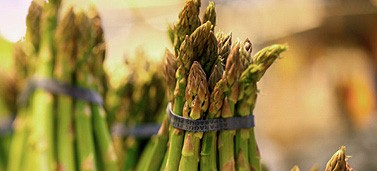Nên xem qua
- ĐẠI LỄ KỶ NIỆM 100 NĂM KHAI ĐẠO CAO ĐÀI VÀ 80 ... Gửi ngày 09/07/2025
- HỘI THÁNH TRUYỀN ĐẠO ĐẾN NHƠN SANH Gửi ngày 29/05/2023
- TỪ Ý THỨC HỆ CAO ĐÀI đến KỶ NGYÊN THÁNH ĐỨC Gửi ngày 11/12/2024
- DINH HƯỚNG ĐẠO CAO ĐAI HỘI NHAP QUỐC TẾ Gửi ngày 24/10/2024
- KẾT TẬP CÁC THAM LUẬN VỀ TÍN ĐỒ TRẺ CAO ĐÀI VÀ ... Gửi ngày 30/11/2025
- TỪ Ý NGHĨA MÙA XUÂN ĐẾN Ý THỨC SỨ MẠNG: Gửi ngày 03/02/2025
- Tôn giáo trong kỷ nguyên mới - Viết tiếp hành trình đồng ... Gửi ngày 11/09/2025
- Đi tìm cái lý xác thực của Đức tin Cao Đài Gửi ngày 25/09/2022
- LỄ VÀ KHIÊM Gửi ngày 10/12/2021
- TỪ TYT HỆ CAO ĐÀI ĐẾN KY NGUYEN THÁNH ĐỨC (TIEP THEO ... Gửi ngày 11/12/2024
- HỘI NGHỊ LIÊN GIAO LẦN 12 CÁC HỘI THÁNH và CÁC TỔ ... Gửi ngày 24/03/2019
- TỪ Ý THỨC HỆ CAO ĐÀI PHẦN II ( TẾP ... Gửi ngày 11/12/2024
The vegan diet
Gửi ngày 15/07/2016

The vegan diet
A vegan diet contains only plants – such as vegetables, grains, nuts and fruits – and foods made from plants.
Vegans don't eat foods that come from animals, including dairy products and eggs.
Healthy eating as a vegan
You should be able to get most of the nutrients you need from eating a varied and balanced vegan diet.
For a healthy vegan diet:
- Eat at least five portions of a variety of fruit and vegetables every day.
- Base meals on potatoes, bread, rice, pasta or other starchy carbohydrates. Choose wholegrain where possible.
- Have some dairy alternatives (such as soya drinks and yoghurts). Choose lower-fat and lower-sugar options.
- Eat some beans, pulses and other proteins.
- Choose unsaturated oils and spreads, and eat in small amounts.
- Drink plenty of fluids – the government recommends 6-8 cups/glasses a day.
See the Eatwell Guide for more information about a healthy diet. It applies to vegetarians, vegans, people of all ethnic origins and those who are a healthy weight for their height, as well as those who are overweight. The only group it is not suitable for is children under two years of age, because they have different needs.
Getting the right nutrients from a vegan diet
With good planning and an understanding of what makes up a healthy, balanced vegan diet, you can get all the nutrients your body needs.
If you don't plan your diet properly, you could miss out on essential nutrients, such as calcium, iron and vitamin B12.
Vegans who are pregnant or breastfeeding
During pregnancy and when breastfeeding, women who follow a vegan diet need to make sure they get enough vitamins and minerals for their child to develop healthily.
See vegetarian and vegan mums-to-be for more information.
If you're bringing up your baby or child on a vegan diet, you need to ensure they get a wide variety of foods to provide the energy and vitamins they need for growth.
See vegetarian and vegan babies and children for more information.
Vegan sources of calcium and vitamin D
Calcium is needed for strong and healthy bones and teeth. Non-vegans get most of their calcium from dairy foods (milk, cheese and yoghurt), but vegans can get it from other foods.
Good sources of calcium for vegans include:
- fortified, unsweetened soya, rice and oat drinks
- calcium-set tofu
- sesame seeds and tahini
- pulses
- brown and white bread (in the UK, calcium is added to white and brown flour by law)
- dried fruit, such as raisins, prunes, figs and dried apricots
The body needs vitamin D to absorb calcium. Vegan sources of vitamin D are:
- exposure to summer sunshine (April to October) – remember to cover up or protect your skin before it starts to turn red or burn; seevitamin D and sunlight
- fortified fat spreads, breakfast cereals and unsweetened soya drinks (with vitamin D added)
- vitamin D supplements
Vegan sources of iron
Iron is essential for the production of red blood cells. A vegan diet can be high in iron, although iron from plant-based food is absorbed by the body less well than iron from meat.
Good sources of iron for vegans are:
- pulses
- wholemeal bread and flour
- breakfast cereals fortified with iron
- dark-green leafy vegetables, such as watercress, broccoli and spring greens
- nuts
- dried fruits such as apricots, prunes and figs
The body needs vitamin B12 to maintain healthy blood and a healthy nervous system. Vitamin B12 is only found naturally in foods from animal sources. Sources for vegans are therefore limited and a vitamin B12 supplement may be needed.
Sources of vitamin B12 for vegans include:
- breakfast cereals fortified with B12
- unsweetened soya drinks fortified with vitamin B12
- yeast extract such as Marmite, which is fortified with vitamin B12
Omega-3 fatty acids, primarily those found in oily fish, can help to maintain a healthy heart and reduce the risk of heart disease when eaten as part of a healthy diet.
Sources of omega-3 fatty acids suitable for vegans include:
- flaxseed (linseed) oil
- rapeseed oil
- soya oil and soya-based foods, such as tofu
- walnuts
However, if you follow a vegan diet you can still look after your heart by eating at least five portions of a variety of fruit and vegetables every day, by cutting down on food that is high in saturated fat, and watching how much salt you eat.


